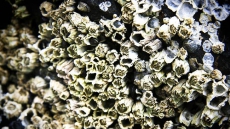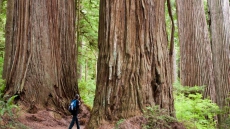NASA's telescopes are not just helping us look into the dark deep universe but have inspired surgeons to restore the eyesight of the elderly.
Phyllis Price, a 79-year old woman can see again after mini magnifying glasses inspired by the Hubble Space Telescope were placed inside her eyes.
Price had suffered from macular degeneration for years and had not even been able to recognise members of her own family for years.
"The difference in my sight is amazing. I lost all my confidence I could no longer read or sew and could only recognise people by voice," Phyllis was quoted as saying.
During the operation, two lenses, 2mm apart, were placed into Phyllis' eyes.
The tiny telescopes inserted in her eyes, magnified the images and also directed them away from diseased parts of the eye and onto healthier areas.
"I went to a restaurant shortly after having the implant in my second eye, and could read a menu for the first time in two years," Price added.
The surgery was performed at the London Eye Hospital by surgeon Bobby Qureshi, the Mirror reported.
This "giant leap" in medical science holds hope to an optical disease that affects hundreds of thousands of elderly people.





